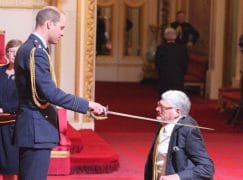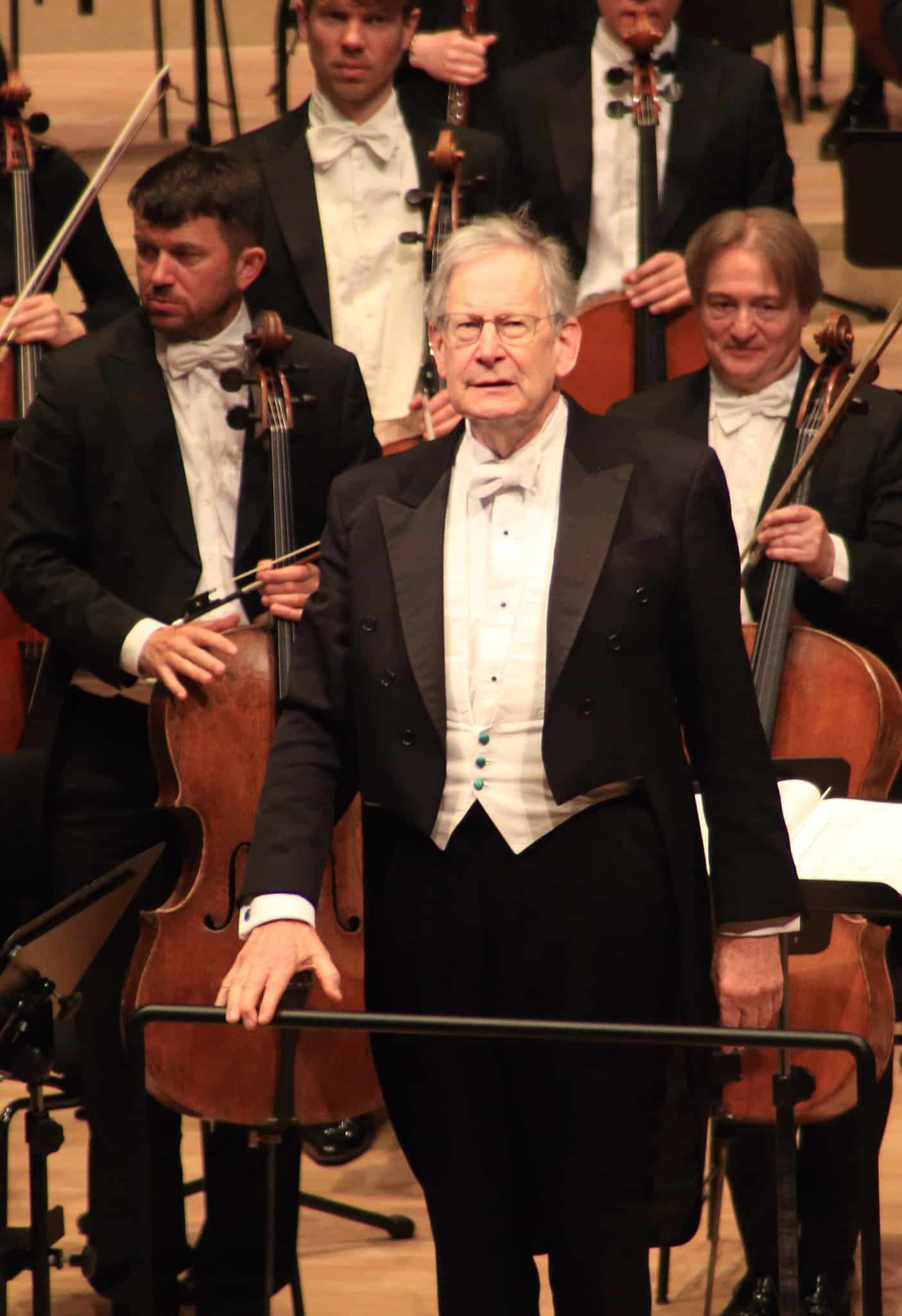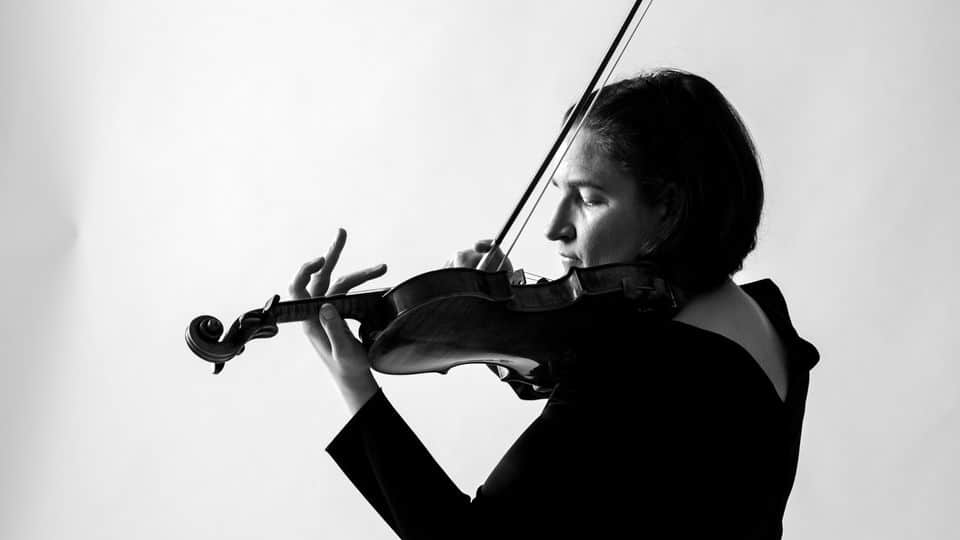Arise, Sir Maestro…
mainThe British conductor Jeffrey Tate was knighted yesterday by Prince William.

Tate, 74 next week, is chief conductor of the Hamburg Symphony Orchestra.
Born with spina bifida, he has been principal conductor at Covent Garden, the Rotterdam Philharmonic and the Sao Carlo theatre in Naples.
photo: PA pool





Richly deserved.
SAN Carlo?
Depends on whether you are writing in Portuguese or Italian
all okay:
Teatro Nacional de São Carlos (Lisbon)
Teatro Nacional São Carlos
Teatro di San Carlo (Naples)
Teatro San Carlo
Given it’s in Italy, it would be strange to use the Portuguese spelling.
Congratulations to the great conductor but I thought he had been knighted years ago.
I hate these pictures of people on their knees before royalty. Who needs it?
Agree It’s shameful.
You need it if you want to be knighted. The process involves being ‘dubbed’ with a sword, for which the kneeling position is customary.
And it is slightly ill-advised to lecture other cultures about their traditions, especially civilised, consensual and historically significant ones!
So this is consensual between William and Jeffrey? Hadn’t realized.
I am British myself, so do not represent any culture other than British. Personally, I find this tradition despicable, both the awarding of titles and, worse, the kneeling before so-called royalty. Why should anybody kneel before this so-called prince? What makes him a prince? What gives him the attribute of ‘Royal Highness’? We are supposed to believe that it is, ultimately, bestowed by God, since his grandmother reigns as Queen of the United Kingdom of Great Britain and Northern Ireland and of Her Other Realms and Territories ‘by the Grace of God’. He is a human being, neither more nor less. To quote the Universal Declaration of Human Rights, ‘All human beings are born free and equal in dignity and rights.’ Yet he is not. He and I were not born equal in dignity. He was born His Royal Highness Prince William of Wales. People have always bowed before him. I remember hearing a photographer trying to get his attention by calling, ‘Sir!’ It is obscene that this carries on in the twenty-first century. I find it bizarre that anybody can fail to see that there is no such thing as royalty or nobility, that they are just human beings like anybody else. Before the 2nd Viscount Stansgate disclaimed his peerage he had a sample of blood taken to prove that the same blood flows through our veins whether we are noblemen or commoners. Jeffrey Tate is one of the finest conductors of our time. Had he not become a conductor he would presumably have pursued his earlier career as an ophthalmic surgeon, no small achievement in itself. And he has done this despite severe disability. Perhaps the Duke of Cambridge should be kneeling before Jeffrey Tate.
So you are a republican, I take it.
(My fellow Americans, note the lowercase r.)
Are you, by chance, also a disestablishmentarian?
Absolutely. I would strongly advocate the abolition of the monarchy and the disestablishment of the Church of England. Many of my countrymen find these positions strange, but when we look at the United States of America we see a country that has done rather well for itself with no king, with a constitutional prohibition against the granting of titles of nobility (US Constitution 1.9.8), and against the establishment of a religion (Amendment 1). I frankly find it embarrassing when I have to explain to foreigners that, in addition to 92 hereditary noblemen, 26 Anglican bishops enjoy seats in our upper house of legislature.
Not if you’re Jewish.
Even as an American, I like it. Not the kneeling before royalty, but the idea that as big as you may be, you are still a “subject” of your nation – of something bigger than yourself – if not necessarily of the monarch.
I’m afraid you have this wrong. British citizens are now citizens of the United Kingdom, not subjects of the monarch. ‘Citizen’ refers to the relationship between the individual and the state, whereas ‘subject’ refers to the relationship between the individual and the monarch. There do still exist some people who are British subjects, but it is a small and diminishing group (essentially a British subject is somebody who was born in Ireland or a British colony who claims the status of British subject but is not entitled to be a British citizen or a citizen of another country). Personally, I cannot imagine many Americans wishing to exchange their status as American citizens for that of American subject or subject of the President of the United States of America. Furthermore, I do consider myself to be part of something bigger than myself, namely, the European Union. However, I do not consider myself to be part of the United Kingdom. It is merely an accident of birth that I was born a citizen of this country and not of some other country. Should my circumstances change in the future I shall be very happy to renounce British citizenship and acquire citizenship of some other country. For the time being it is merely a convenience that I need some country where I am entitled to live and whose passport I am entitled to bear. If I could obtain the right to reside permanently in France, for example, and to bear a French passport, I would do so (as a French citizen, not as a subject!)
Surely it wasn’t The Queen or Parliament that have taken the UK out of Europe, rather, a minority of registered voters…citizens. Would that The Queen and Parliament could put Humpty Dumpty together again but a ha ha sovereign Volk has spoken. And blundered big. So no French citizenship for Alexander. By the way the French President’s annual budget is ca 4 times that of the British Monarchy. Hardly seems right, does it…..
I was only giving France as an example. I could equally have given a non-EU country. Also, there is no reason why non-EU citizens cannot be naturalised as French citizens. I could, of course, settle in Ireland, since the UK will remain part of the Common Travel Area. I could also settle in Northern Ireland (since it is part of the UK), and residence in Northern Ireland is counted towards eligibility to claim Irish citizenship, typically after five years.
Certainly I have always believed in the principle of ever closer union, and, for me, Britain’s membership of the EU became less meaningful after David Cameron gained exemption from Britain’s participation in this process.
I can see that it must be enjoyable to be a citizen of a country of which one is proud and to which one feels a sense of belonging. For example, while the reality has frequently failed to live up to the ideals of the Founding Fathers, I have always had great admiration for the United States of America, for the idea of ‘a … nation, conceived in liberty, and dedicated to the proposition that all men are created equal.’ As an undergraduate studying the role of the US Supreme Court in the civil rights movement I was frequently struck by the idea that the court’s judgements in favour of African American civil rights were intended to be perceived as the correct interpretation of the intentions of the Founding Fathers and of the text of the Constitution. For all it faults, the ideals upon which America was founded are ones of which I believe that any citizen could be proud. We hear a lot these days about British values, but nobody seems to know what those British values actually are. Whenever anybody attempts to define them it seems that they are merely talking about values that are common to most western democracies, e.g. gender equality and freedom of speech.
Me too…
I am a British citizen and I agree with you. I can’t bear seeing my fellow citizens bowing and curtseying before royalty. I have greater respect for those who decline these honours, e.g. L.S. Lowry, who declined an OBE, CBE, knighthood, and, twice, the Order of the Companions of Honour. Plain Mr Lowry was good enough for him.
Whether subjects or citizens, very few of them decline the honour, and seem
not at all troubled by tradition and protocol. One should not
underestimate the thrill that it is for many to bow, to curtsey,
to kneel to Royalty, to be in The Presence. This is the way of the world. Live with it.
Personally, I have never understood this. It sounds like something more proper to a religion than to a state. Of course, Catholics will genuflect and make the sign of the cross in the presence of the Blessed Sacrament, believing it to be in a real sense the actual body and blood of Jesus Christ. They will also genuflect before bishops, believing them to be the successors of the apostles, and in particular before the Holy Father, since he is considered to be the Vicar of Jesus Christ, i.e. a representative of Jesus Christ on earth acting in his stead during the temporary situation during which the Church exists on earth and Jesus Christ exists in heaven, hence the common description of the Pope as ‘God’s representative of earth’. I have seen the Queen in person a number of times, in and around Westminster Abbey, in the House of Lords, and at Windsor Castle. Never did I consider it to be a thrill. I always thought it very silly seeing grown men and women bowing and curtseying before her. In fact, I do not think that there is anyone I have met who has been so special that it has been a thrill merely to be in his or her presence. Desmond Tutu perhaps comes close. He clearly is a truly good man.
So: we have established that you are a Remoaner.
That you are very verbose.
And that you are (eccentrically) thrilled by the idea of being in the presence of…er…Desmond Tutu but not our undoubted Queen of over 60 years.
Dear oh dear…
Anyway, Sir Jeffrey is a member of my club and we shall be raising a glass to him. A great musician.
I didn’t say that I was thrilled to be in the presence of Desmond Tutu, just that he would perhaps be the closest I can think of to somebody whose very presence seemed remarkable. I don’t think it too strange to be more impressed by somebody who has done with his life what Archbishop Tutu has done than by somebody who has merely inherited a role as head of state.
Getting this thread back on track…. The recognition is richly deserved – Sir Jeffrey is to be congratulated. It was worth a visit to Hamburg to hear him at work recently – and should his agent / any opera/orchestra artistic directors be reading, it would be good to hear him at work again in the UK after an all too long absence. How about the Proms next year with his Hamburg forces? Much rather that than the non-entity ‘names’ parading tired or overly gimmicky programming that traditionally pads out the over-stuffed season …
How about a return to the Metropolitan Opera? The former Mr. Tate (now Sir Jeffrey) was greatly admired during his tenure there.
The ceremony almost took a wrong turn when the prince had first been informed with the wrong instruction – from the same book – that would have led to Mr Tate’s decapitation. But fortunately his secretary could correct the exercise just in time.
Royal Decapitation has been out of fashion since the 17th century, when the Glorious Revolution did away with that special honour.
Glad to realize that none of the commentators above has been knighted. Wills is a terrific person. Sometimes I wish him a different people…;-)
Now, now…
From recent comments of this sort (the last re the Heir) you appear only to like members of the Royal Family among the British population, which might make you a teeny-tiny snob…
Working as a search and rescue helicopter pilot is indeed an admirable career to choose. His younger brother completed two tours of duty in Afghanistan, again, an admirable service to his country. I applaud them as I would applaud anybody who serves in the armed forces, police, fire, ambulance, coastguard, and mountain rescue services, medicine, nursing, midwifery, teaching, prisons, probation service, etc, all of them very noble vocations. That is not to say, however, that I think that he is necessarily well suited to the job of being head of state, not only of the UK, but also of a further 15 countries around the world. He will inherit that job from his father, just as his father will inherit it in turn from his mother, and she inherited it from her father, who inherited it from his elder brother, and so on. It really is not so strange to think that the head of state might be elected, directly or indirectly, by the citizens of the country, as is the case in a number of successful countries around the world, such as the USA, Ireland, France, Germany, India, Israel, and so on. I also find it ridiculous that we can expect the Duke of Cambridge one day to become Supreme Governor of the Church of England. To the best of my knowledge, terrific person though he may be, he has no particular expertise in the field of religion.
Many people who are governors of schools are not educationalists. The head of state does not actively run the church – he or she is a figurehead.